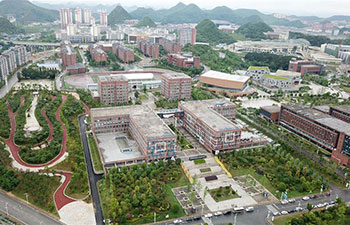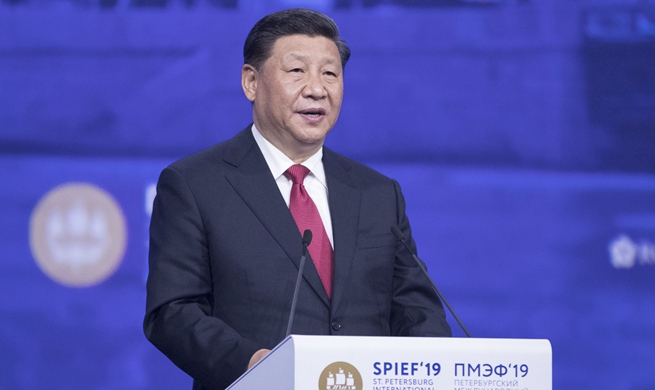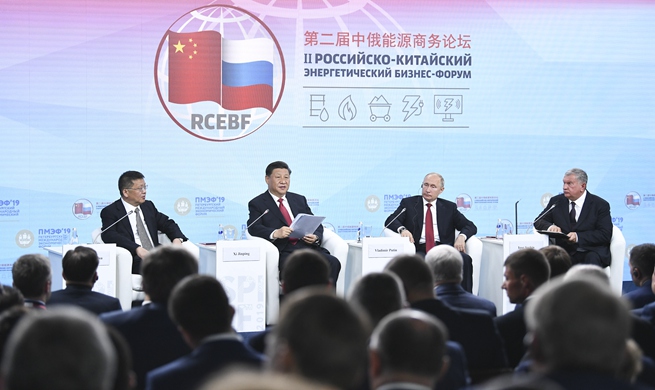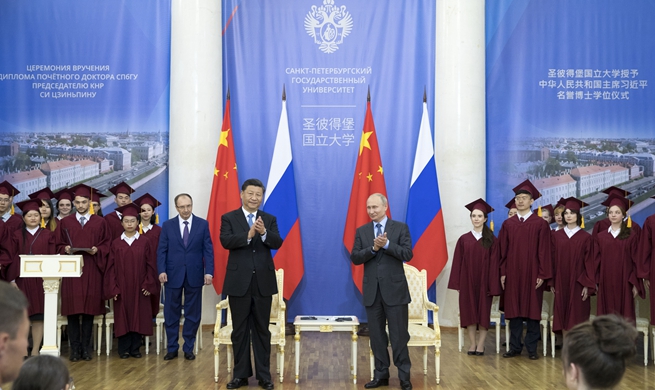by Hassan Rouhvand
TEHRAN, June 9 (Xinhua) -- With the aim of pressing Iran to the negotiation table for a new deal on the country's nuclear program, the United States sanctioned Iran's oil exports, the main source of its revenue, in November last year.
Now, Washington plans to mount up pressures on Iran by curbing another key source of income, namely the country's petrochemical sector.
As a preliminary step to this end, U.S. Treasury department announced on June 7 that the United States had imposed economic sanctions on Iran's Persian Gulf Petrochemical Industries Company (PGPIC).
The department cited sanctions on PGPIC because of its ties with the country's Islamic Revolution Guards Corps (IRGC) which was recently designated as a "foreign terrorist organization" by the United States.
The PGPIC is responsible for 50 percent of the country's petrochemical exports, the U.S. Treasury said, warning that the international companies which are continuing to partner with PGPIC or subsidiaries and sales agents "will themselves be exposed to U.S. sanctions."
Based on a report by Iran's Financial Tribune daily on Sunday, the PGPIC is one of the country's largest petrochemical enterprise with 60 subsidiaries.
Jafar Rabiei, managing director of PGPIC, said that the company accounts for 37 percent of the total national petrochemical production, which is close to 60 million tons per year.
"In our view, Iran's petrochemical sector is 'unsanctionable,' said Behzad Mohammadi, Iranian petrochemical expert.
"Petrochemicals are sold under conditions different from those of oil sales," Mohammadi said.
"Despite oil exports and its loading bases and huge tanker carriers which are able to be traced, the petrochemical export's means are untraceable," he said.
Besides, Iranian petrochemical industry produces some 350 products, which are sold to hundreds of customers in dozens of global destinations, he said, adding that "this enhances its steering capability."
Fariborz Karimaee, another Iranian expert, argued that "sanctioning the petrochemical sector is not a matter of immediacy. Besides, it is a very complicated process in the long run."
Iran sells a large variety of petrochemical products at different grades to a vast diversity of global customers, Karimaee, also a senior member of Iran's Petrochemical Industry Association, pointed out.
"This is a major reason for inability of the United States for putting embargos on Iran in this field," he stressed.
"In the meantime, the emerging technologies and the subsequent needs in the world open new markets for Iran's petrochemical products, which broadens its market even further," Karimaee said.
Therefore, "sanctioning the industry and management of such sanctions in this expanding market are not easily feasible," he added.

















